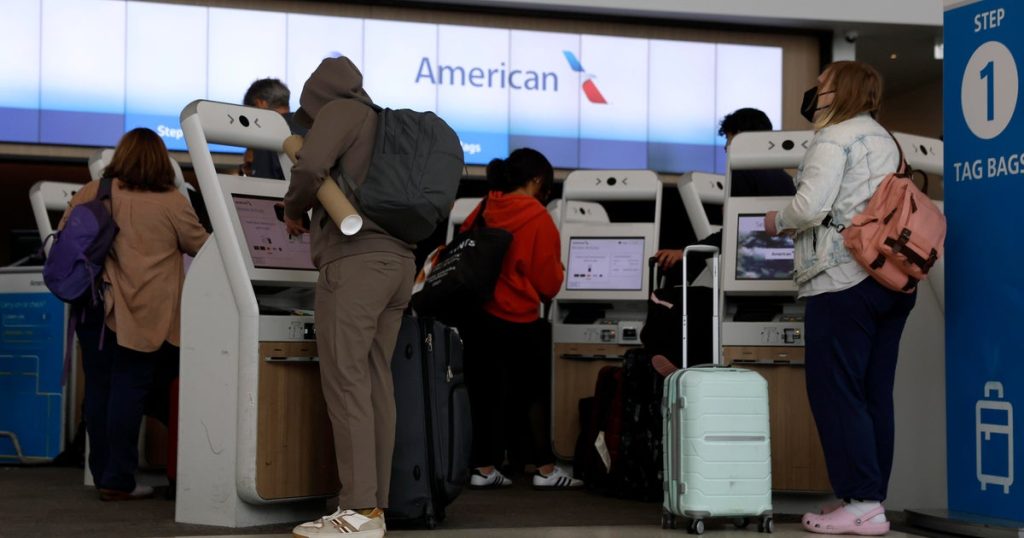In a recent announcement, the Trump administration revealed an initiative aimed at encouraging unauthorized immigrants in the U.S. to voluntarily return to their home countries. Eligible individuals will receive free airline tickets and a $1,000 incentive as part of this self-deportation program. This approach is seen as a way to manage the resources of immigration enforcement agencies while providing a more dignified exit option for those facing the threat of deportation.
| Article Subheadings |
|---|
| 1) Overview of the Self-Deportation Initiative |
| 2) Process and Eligibility Criteria |
| 3) The Financial Implications for the U.S. Government |
| 4) Challenges and Consequences of Self-Deportation |
| 5) Future Prospects for Participating Immigrants |
Overview of the Self-Deportation Initiative
The recent policy shift by the Trump administration introduces a self-deportation program targeting unauthorized immigrants residing in the United States. This initiative is characterized by offering travel assistance in the form of free airline tickets and a monetary incentive of $1,000 to encourage voluntary return to their countries of origin. The Department of Homeland Security (DHS) has confirmed that some immigrants have already utilized this program, traveling back to countries such as Honduras, following a confirmed flight arrangement from U.S. cities like Chicago. This step reflects a tactical shift designed to manage immigration levels while purportedly treating individuals with dignity as they leave the country.
Process and Eligibility Criteria
To participate in the self-deportation initiative, eligible immigrants are required to utilize a government-issued smartphone application known as CBP Home. Initially developed to assist certain migrants in legally entering the U.S., this app now serves as a platform for individuals voluntarily signaling their intent to exit the country. Interested participants will thus provide necessary details via the app, allowing DHS to offer logistical support for their departure. Importantly, this program not only grants travel assistance but also prioritizes participants for reduced risk of detention by Immigration and Customs Enforcement (ICE), so long as they are actively working towards self-deportation.
The Financial Implications for the U.S. Government
The Trump administration’s self-deportation initiative is not merely a humanitarian approach; it also serves as a means to conserve government resources. DHS officials have highlighted that arresting, detaining, and deporting an unauthorized immigrant incurs an average cost of $17,121. By facilitating voluntary departures through this initiative, the government aims to reduce these financial burdens significantly. The fiscal rationale is further solidified by reports of thousands of self-deportations successfully tracked by the administration, indicating that this approach may serve as an effective tool in managing immigration costs while simultaneously addressing the complex realities surrounding illegal immigration.
Challenges and Consequences of Self-Deportation
Despite the apparent benefits, the self-deportation initiative raises significant challenges for individuals choosing this path. For many, navigating the complexities associated with returning home can be daunting, especially as the process of seeking legal re-entry into the U.S. is often lengthy and filled with obstacles. Individuals who have been in the country illegally for over a year could face a 10-year ban upon departure, complicating their future prospects. Furthermore, the socio-economic realities faced by those considering self-deportation often include a lack of resources and connections back home, making the decision more difficult. Concerns about the potential ramifications of this program on families and communities remain a fervent topic of discussion among immigration advocates.
Future Prospects for Participating Immigrants
The Trump administration has indicated that immigrants participating in the self-deportation initiative may be eligible to return to the U.S. legally in the future. However, achieving this status typically requires navigating a complicated, expensive, and time-consuming legal process. For many unauthorized immigrants lacking financial resources or familial ties within the U.S., the journey back to legality can seem unattainable. Critics of this initiative caution that while the self-deportation offer seems benevolent, the realities faced by participants upon returning home cast doubt on the program’s overall effectiveness and long-term impact.
| No. | Key Points |
|---|---|
| 1 | The Trump administration launched a self-deportation program offering free airline tickets and a $1,000 incentive. |
| 2 | Eligible immigrants can use the CBP Home app to express their intent to leave voluntarily. |
| 3 | DHS believes the self-deportation initiative will save significant government resources. |
| 4 | Challenges such as re-entry bans and socio-economic conditions complicate the decision for immigrants. |
| 5 | Future legal re-entry into the U.S. for participating immigrants remains uncertain and complex. |
Summary
In summary, the Trump administration’s self-deportation initiative seeks to provide a structured and incentivized method for unauthorized immigrants to return to their countries. While it aims to alleviate the burdens on immigration enforcement resources, the implications for those participating are multifaceted and often fraught with challenges. As the discourse surrounding immigration policy continues to evolve, the true efficacy and humanitarian impact of such initiatives will warrant careful examination and critical dialogue.
Frequently Asked Questions
Question: What is the self-deportation initiative?
The self-deportation initiative is a program that offers unauthorized immigrants in the U.S. airline tickets and a monetary incentive to voluntarily return to their home countries.
Question: How do immigrants sign up for the self-deportation program?
Eligible immigrants can express their intent to leave the U.S. using the CBP Home smartphone application, which facilitates their participation in the program.
Question: What are the financial implications of the self-deportation initiative for the U.S. government?
The initiative is designed to save the U.S. government money by reducing costs associated with the arrest, detention, and deportation of unauthorized immigrants.


